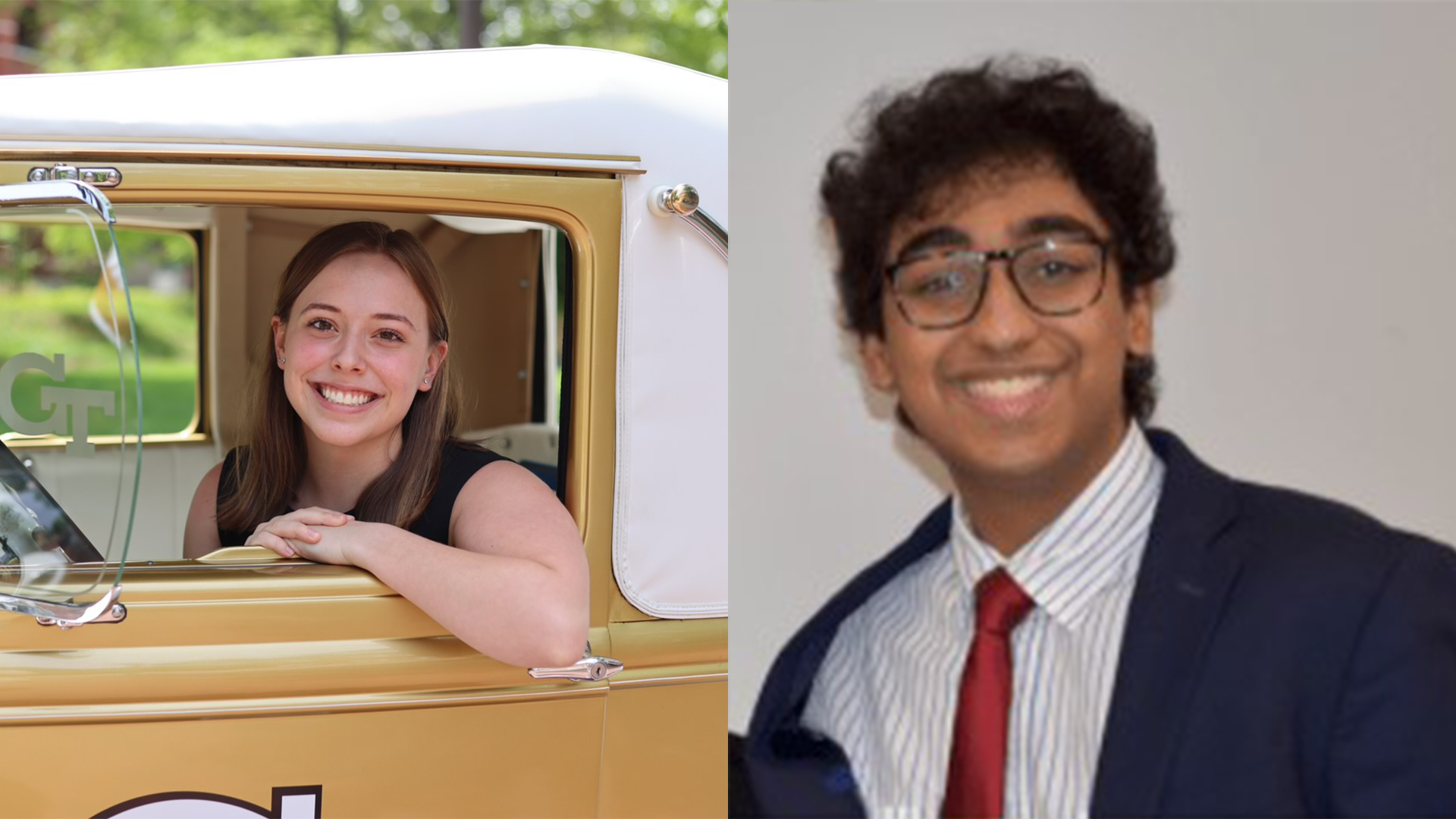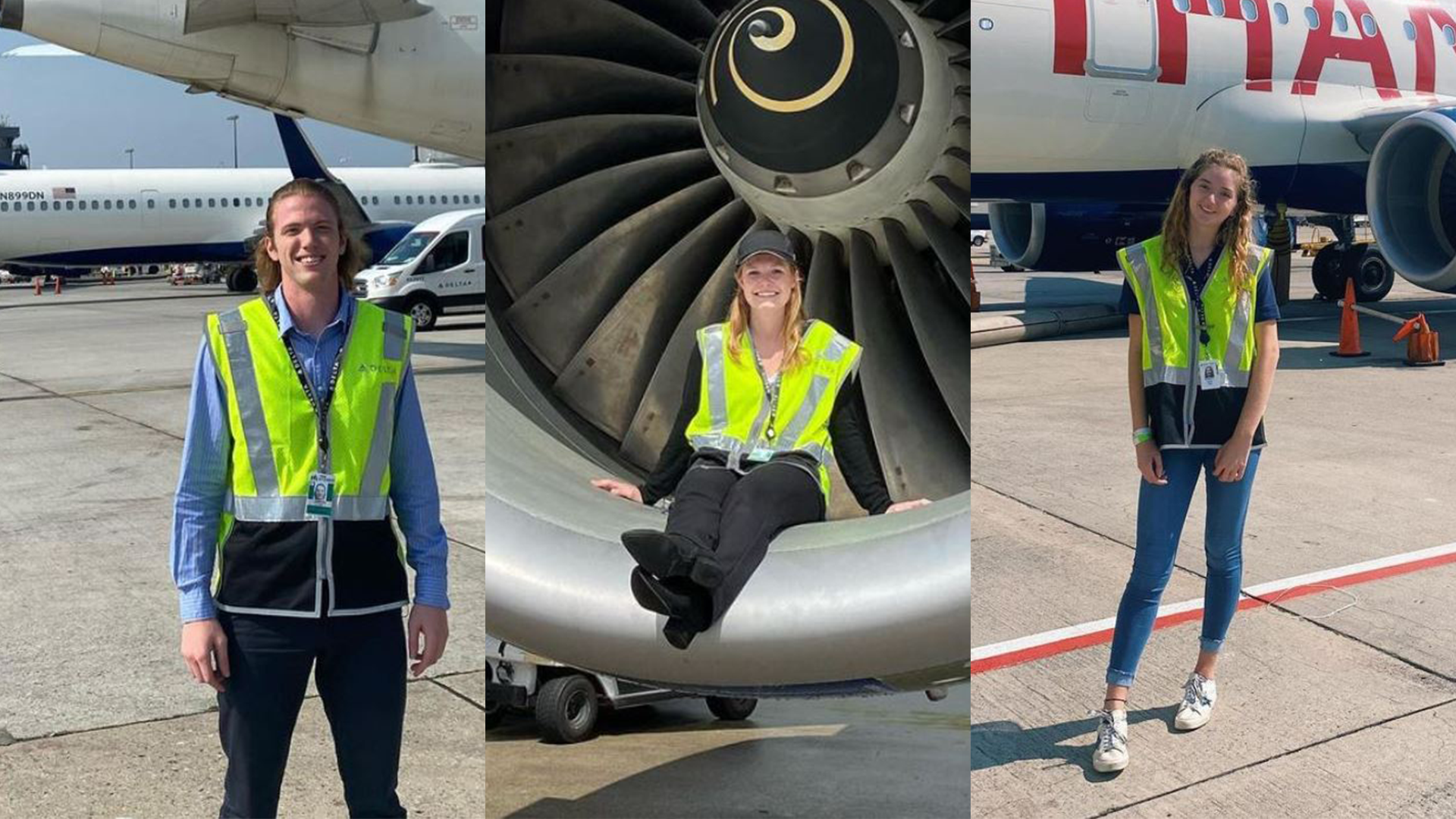In Georgia Tech’s 2021 Carbon Reduction Challenge, organized by the Global Change Program and the Ray C. Anderson Center for Sustainable Business at the Scheller College of Business, students stepped up to propose ways to reduce carbon emissions and costs at major organizations.
Summer 2021 marked the fifth year of the Challenge, which supports students in becoming sustainability ambassadors at their places of work. The Challenge is co-directed by College of Sciences Professor Kim Cobb and Scheller College of Business Professor Beril Toktay. This year, 22 participants volunteered to go above and beyond their regular internship duties, researching and pitching carbon- and cost-saving projects to their employers. Partnering organizations included ABEC, City of Tucker, Delta Air Lines, Freeport-McMoRan, Solvay, Georgia Tech - Office of Campus Sustainability, and Marsh & McLennan Agency.
On August 17, 2021, the collective accomplishments of all participants were celebrated at the virtual Carbon Reduction Challenge Finalist Expo, where selected students shared their projects with the public. Projects were judged by Cobb and Toktay, along with two external judges, Courtney Naser (BSBA ’18), sales enablement and compensation senior analyst at Truist Wealth, and Rahul Saxena, associate director for CREATE-X Launch.

Emily Crawford and Sarang Pujari won second prize for a project with Georgia Tech’s Office of Campus Sustainability.
First prize ($2,000) was awarded to Suhas Yalamarti, a business administration major, for his project at ABEC, a leader in manufacturing for the biopharmaceutical industry. Yalamarti, a global supply chain intern, researched and proposed a carbon-conscious method of procuring bubble wrap used to package disposable bags for Custom Single Run® bioreactors. The specialty wrap is produced in very few locations around the world. ABEC has been using air freight to ship the product from the vendor to its site in Fermoy, Ireland. Through his research, Yalamarti identified an alternate vendor in the U.S. that could ship the product via ocean freight. The transition from air to ocean freight comes with an annual savings of 11,200 lbs. of CO2 and $3,700.
Yalamarti said he registered for the Challenge because he knew the opportunity to reduce his company’s carbon footprint would be a great supplement to his day-to-day tasks as an intern. He was particularly interested in exploring how to create sustainable supply chains. “Through the Challenge,” he reflected, “I was able to learn about optimizing packaging processes for global shipping. Also, pioneering this work at ABEC also allowed me to gain a deeper understanding of the company’s day-to-day operations, especially in our receiving department.” One of Yalamarti’s key takeaways from participating in the Challenge was that “carbon reduction know-how is essential for tomorrow’s business leaders.”
Second Prize ($1,000) was awarded to Emily Crawford and Sarang Pujari for a project with Georgia Tech’s Office of Campus Sustainability. The students’ work focused on transitioning from outsourcing composting to an in-house composting system.
Third Prize ($500) was awarded to Madeline Gorke, Danielle Khalil, and Louis Lammers for a project on electrification of the baggage tractor fleet at Delta Air Lines.

Louis Lammers, Madeline Gorke, and Danielle Khalil won third prize for a project on electrification of the baggage tractor fleet at Delta Air Lines.
Honorable Mentions were awarded to Ren Haggerty, Hanka Kirby, and Dariia Yehorova (Solvay); and to Jasmin Lopez (Marsh & McLennan Agency).
If implemented, students’ carbon reduction projects could potentially avoid over 30 million pounds of CO2 and save over $8 million each year, with 35% of the potential carbon reductions coming from projects that propose flexible work arrangements and reimagine the traditional workplace in response to the Covid-19 pandemic.
Toktay said, “It’s a delight to co-manage this project and to see how inspiring our students are, year after year. Being able to empower passionate and committed students’ work is what is best about being an educator.” Cobb concurred, adding that she was “thrilled for the winners” and all those who made it to the finish line of this year’s Challenge. With the stakes extremely high and the need to reduce emissions significantly within the next decade urgent, Cobb said, “The Challenge celebrates what can be done at scale—far beyond the actions of one individual.”
The Carbon Reduction Challenge is a partnership between the Georgia Tech Global Change Program and the Ray C. Anderson Center for Sustainable Business at the Georgia Tech Scheller College of Business in collaboration with the Georgia Climate Project. It is coordinated by Kjersti Lukens, program support coordinator at the Center, and Lalith Polepeddi, research scientist at the Global Change Program. Generous support from the Ray C. Anderson Foundation and the Sheth Foundation makes the Challenge possible.
By Jennifer Holley Lux
